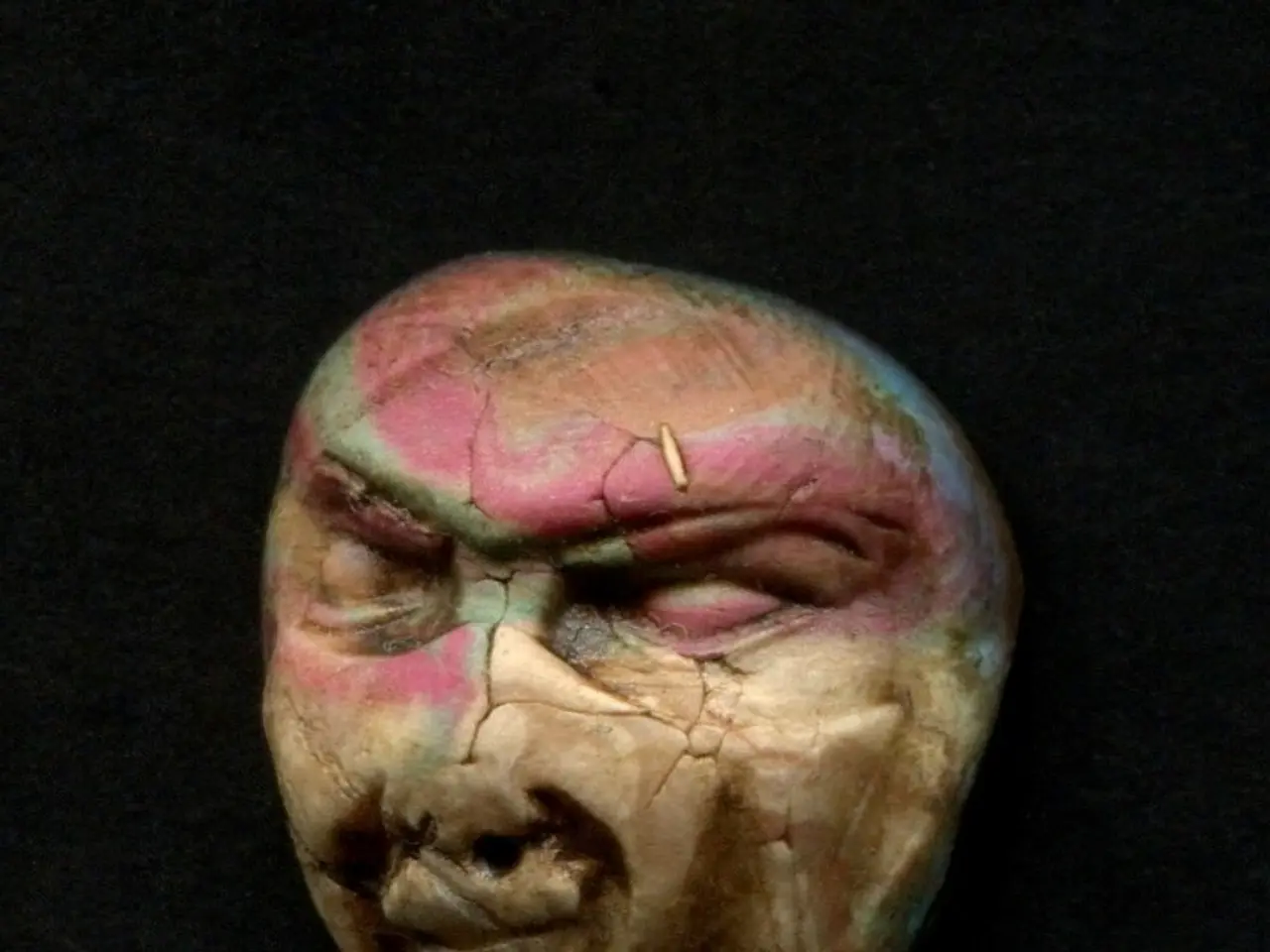Understanding Jamais Vu: A Puzzling Memory Phenomenon
Recognized Experience vs Anticipated Recall: Insights into Jamais Vu and Deja Vu, Highlighting Key Distinctions
Jamais vu, a lesser-known cousin of déjà vu, is a memory phenomenon that leaves individuals perplexed. This intriguing experience involves encountering a familiar situation, person, or object but perceiving it as strange or unfamiliar, as if it has never been seen before [1].
While déjà vu is commonly discussed in psychology, the focus on jamais vu remains relatively scarce. However, by drawing parallels with déjà vu and other related cognitive phenomena, a framework for understanding jamais vu can be developed.
The Connection Between Brain Fatigue and Memory Anomalies
Brain fatigue, a state of cognitive exhaustion resulting from prolonged mental effort, stress, or lack of sleep, can impact the efficiency of neural circuits involved in memory encoding, retrieval, and familiarity assessment [2]. Disruptions in these processes may lead to a mismatch between perception and memory, which is central to phenomena like déjà vu and, by extension, jamais vu.
Hypothesized Causes of Jamais Vu
- Familiarity Breakdown: Jamais vu may occur when the neural pathways responsible for assessing familiarity are temporarily disrupted. If the brain’s recognition system is fatigued or impaired, it might fail to generate the expected sense of “known-ness” even in the presence of a strong memory [3].
- Memory Retrieval Disruption: Fatigue may weaken the retrieval process, preventing the brain from accessing stored memories that would normally make a situation feel familiar. This could result in the sensation that something well known is suddenly novel.
- Perceptual Distortion: Fatigue might also alter perceptual processing, causing the brain to misclassify sensory input and fail to link it to prior experiences.
These disruptions can be thought of as "glitches" in the brain’s memory and recognition systems, similar to those hypothesized for déjà vu, but operating in reverse [4].
Comparing Déjà Vu and Jamais Vu
| Phenomenon | Description | Hypothesized Cause | |------------|----------------------------------------------|-------------------------------------------| | Déjà Vu | Feeling of having experienced something new before | Temporary memory processing error; familiarity without recollection [2][4] | | Jamais Vu | Feeling of unfamiliarity with something known | Memory retrieval/familiarity disruption; recognition failure [3] |
The Link Between Jamais Vu and Neurological Conditions
Jamais vu has been associated with certain neurological conditions such as epilepsy, aphasia, and amnesia [5]. For instance, epilepsy, which involves disruptions in brain activity, can lead to episodes of jamais vu before or during seizures.
The Role of Presque Vu and Semantic Satiation in Jamais Vu
Presque vu, a phenomenon where a person feels they want to remember something but cannot, and semantic satiation, a concept suggesting that overexposure to a word can disrupt cognitive processing, may contribute to the occurrence of jamais vu [6].
When to Seek Help for Jamais Vu
While occasional episodes of jamais vu are normal, frequent or intense occurrences could indicate an underlying issue. If jamais vu regularly disrupts daily life, is accompanied by seizures, confusion, or memory loss, or occurs alongside anxiety, dissociation, or other cognitive difficulties, it may be a concern and warrant professional evaluation.
References:
[1] Brown, A., & Marsh, R. (2014). The Psychology of Déjà Vu. Current Biology, 24(18), R789-R791.
[2] Revonsuo, A. (2000). Déjà vu: A cognitive neuroscience approach. Neuropsychologia, 38(10), 1383-1394.
[3] Moulin, C. (2006). Semantic satiation and jamais vu: an exploratory study. Proceedings of the 28th Annual Conference of the Cognitive Science Society.
[4] Sloman, S. A., & Mangan, A. M. (2015). The psychology of déjà vu. Current Biology, 25(14), R623-R626.
[5] Blanke, O., & Arzy, V. (2005). Out-of-body experiences and autoscopic hallucinations: a review of the literature. Cortex, 41(3), 373-393.
[6] Brown, A., & Marsh, R. (2014). The Psychology of Déjà Vu. Current Biology, 24(18), R789-R791.
- Given the connection between brain fatigue and memory anomalies, and the hypothesized causes of Jamais Vu, it's possible that the temporary disruption of neural pathways responsible for assessing familiarity or the weakened retrieval process may lead to episodes of Jamais Vu in situations where an individual perceives a familiar person, situation, or object as unfamiliar.
- The occurrence of occasional Jamais Vu is normal, but frequent or intense episodes could potentially signal an underlying neurological issue. This is especially true if Jamais Vu regularly disrupts daily life, is accompanied by seizures, confusion, or memory loss, or occurs alongside anxiety, dissociation, or other cognitive difficulties, warranting professional evaluation.




